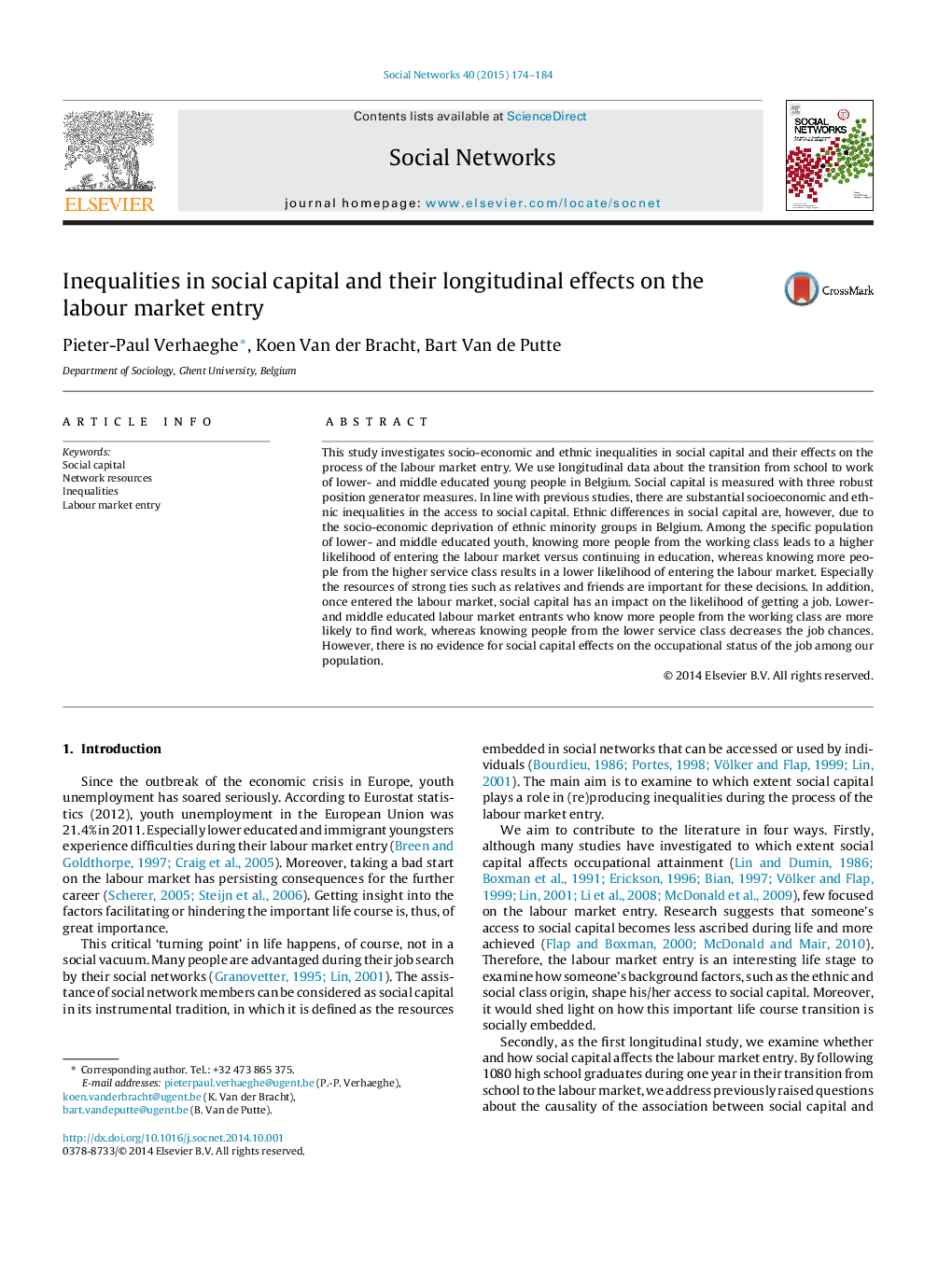| Article ID | Journal | Published Year | Pages | File Type |
|---|---|---|---|---|
| 1129165 | Social Networks | 2015 | 11 Pages |
•Longitudinal data about the labour market entry of lower and middle educated people.•There are profound social and ethnic inequalities in the access to social capital.•Social capital affects the decision to enter job market versus continuing in education.•Once entered the job market, social capital affects the likelihood of finding work.•There are no social capital effects on the occupational status of the job.
This study investigates socio-economic and ethnic inequalities in social capital and their effects on the process of the labour market entry. We use longitudinal data about the transition from school to work of lower- and middle educated young people in Belgium. Social capital is measured with three robust position generator measures. In line with previous studies, there are substantial socioeconomic and ethnic inequalities in the access to social capital. Ethnic differences in social capital are, however, due to the socio-economic deprivation of ethnic minority groups in Belgium. Among the specific population of lower- and middle educated youth, knowing more people from the working class leads to a higher likelihood of entering the labour market versus continuing in education, whereas knowing more people from the higher service class results in a lower likelihood of entering the labour market. Especially the resources of strong ties such as relatives and friends are important for these decisions. In addition, once entered the labour market, social capital has an impact on the likelihood of getting a job. Lower- and middle educated labour market entrants who know more people from the working class are more likely to find work, whereas knowing people from the lower service class decreases the job chances. However, there is no evidence for social capital effects on the occupational status of the job among our population.
